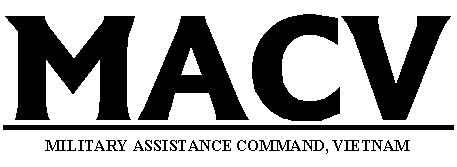Behavior I.

This is coolbert:
The U.S. Army has fought in seven major wars since the year 1900.
All fought "overseas". And It HAS BEEN a major concern of the top commanders that American troops comport themselves appropriately with regard to the local populace. A populace, such as in France, Korea, Vietnam, Iraq, we were purportedly assisting and helping. Behavior on the part of the troops that was to be as gentlemanly and judicious as possible, given the circumstances of war.
The goal was not alienate the locals by antagonistic behavior. Alienation that would hinder the war effort.
During the Vietnam War, American soldiers arriving in Vietnam received a series of pocket cards. Guides that instructed the GI in the proper behavior that was expected of them. Pocket cards they were supposed to carry with them at all times.
One pocket card guide was the "Pocket Card, 'Nine Rules'". Nine rules mandated by the American command [MACV] that all soldiers were to adhere to.
Rules of courtesy and etiquette that the American soldier was expected to conform to. Gentlemanly behavior that would establish a proper rapport between the U.S. troops and the Vietnamese friendly to the U.S. forces.
All soldiers received the "Nine Rules" card and were told exactly what the rules meant. NO deviation was to be allowed. YOU WERE TO OBEY!
NOT always obeyed or followed. The ideal that should have been conformed to, but often was not. You get a bunch of angry eighteen and nineteen year old boys away from home for the first time, having been drafted, and not wanting to be in the war in the first place, and you get a good possibility for "incident". Especially when cultures of such marked difference as the Vietnamese and American collide.
A second pocket card guide was the "MACV Pocket Card,'The Enemy In Your Hands'". How to handle prisoners of war. The current 5S system for handling prisoners now used by the U.S. Army is similar to the guidelines of the Vietnam era pocket card. The current 5S method includes:
* Search. [remove all weapons.]
* Silence. [prevent the POW's from speaking to one another.]
* Segregate. [separate officers, NCO's, and enlisted from one another.]
* Speed. [get to the rear as soon as possible.]
* Safeguard. [protect from abuse and danger.]
Yet a third pocket card guide was addressed to commanders. "MACV Pocket Card,'Guidance for Commanders in Vietnam'". Fifteen sensible rules for commanders of units to follow.
These pocket cards should NOT be thought of as substitutes for the Rules of Land Warfare or as Rules of Engagement. Just guides that outline sound, sensible, gentlemanly behavior and policies that create an atmosphere of amity between U.S. troops, their commanders, and the Vietnamese people fighting with the U.S. against the communist forces.
Rules of behavior that comport to the "ideal"? I am sure that General Westmoreland DID want his troops to obey the various rules and guides he laid down. This DID NOT always happen. But was expected.
coolbert.
Labels: VIetnam

0 Comments:
Post a Comment
Subscribe to Post Comments [Atom]
<< Home